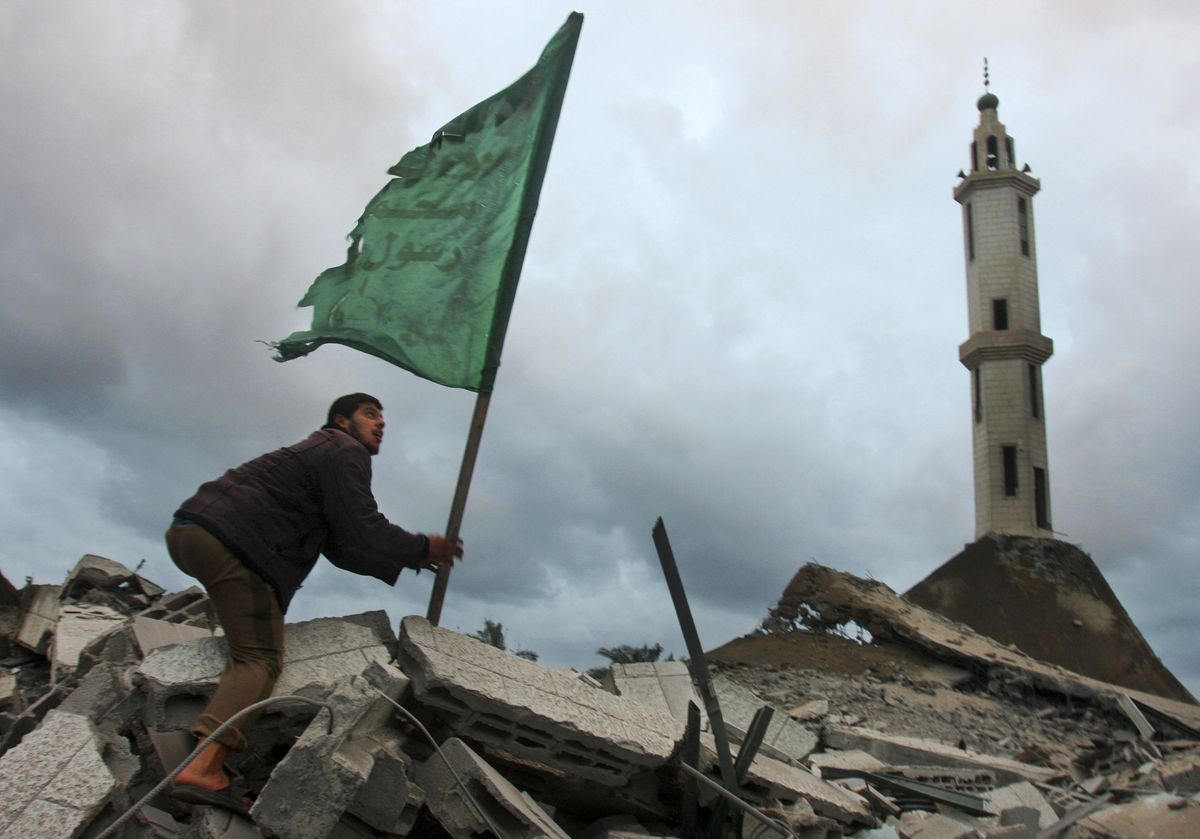Israel, Hamas intensify fighting, ignoring calls for cease-fire
Israeli troops prepare for possible ground operation

GAZA CITY, Gaza Strip – Israel sent more troops to the Gaza border Wednesday, rapidly moving forward with preparations for a possible ground offensive as the next stage of its military assault on the coastal territory’s Hamas rulers.
Israel rebuffed calls by world leaders for a truce, and Hamas also was cold to a cease-fire.
Instead, both intensified their fire. Israel bombed a mosque that it said was used to store rockets as well as vital smuggling tunnels along the Egyptian border, and the Islamic militants hammered southern Israeli cities with about 60 rockets.
Israeli troops trudged between dozens of tanks in muddy, rain-sodden fields outside Gaza, assembling equipment, cleaning weapons and scrubbing out tank barrels. Their commanders moved forward with preparations for a ground operation, said an Israeli defense official who spoke on condition of anonymity because of the sensitive nature of the information.
The U.N. Security Council scheduled emergency consultations Wednesday night to discuss an Arab request for a legally binding and enforceable resolution to ensure an immediate cease-fire in Gaza. Egyptian Ambassador Maged Abdelaziz said he was on instructions from Arab League foreign ministers who met in Cairo.
Diplomatic efforts by U.S., European and Middle Eastern leaders appeared to be having little effect. A French proposal for a 48-hour cease-fire to allow humanitarian supplies into Gaza failed to gain traction. Israeli Prime Minister Ehud Olmert said the time was not ripe to consider it.
A separate proposal by Turkey and Egypt, two of Israel’s few allies in the Muslim world, also seemed to be attracting little serious study in Israel or Gaza, where Hamas leaders dismissed talk of a truce.
With a shrinking number of targets to hit from the air and top Hamas leaders deep in hiding, a ground operation seemed all the more likely. In five days of raids, Israeli warplanes carried out about 500 sorties against Hamas targets and helicopters flew hundreds more combat missions, a senior Israeli military officer said, speaking on condition of anonymity in line with military regulations.
The government has approved the call-up of more than 9,000 reserve soldiers. Heavy rain clouds that could hinder ground forces were expected to lift today.
U.N. humanitarian chief John Holmes said the death toll was estimated at 320-390 and the number of injured at 1,500-1,900. Between 20 percent and 25 percent of the dead are either women or children, said Karen Abu Zayd, U.N. Relief and Works Agency commissioner.
Hamas says some 200 uniformed members of its security forces have been killed, and the U.N. says at least 60 Palestinian civilians have died.
In Israel, three civilians and a soldier have been killed by rocket fire, which has reached deeper into Israel than ever. The sites of the missile hits have drawn curious crowds.
Israel’s latest airstrikes concentrated on crushing the many smuggling tunnels under Gaza’s southern border with Egypt. They provide a crucial lifeline, not just for Hamas rulers, but also for bringing in food and fuel for Gaza’s people.
Holmes, the U.N. humanitarian chief, expressed concern about the fighting’s impact on civilians. He said hospitals were struggling to cope with casualties and the lack of fuel deliveries had forced Gaza’s power plant to shut down Tuesday.
But U.N. officials said the major need was grain and other food. Holmes said the Kerem Shalom crossing remained open and 55 trucks got through Tuesday and about 60 on Wednesday, mainly carrying food.